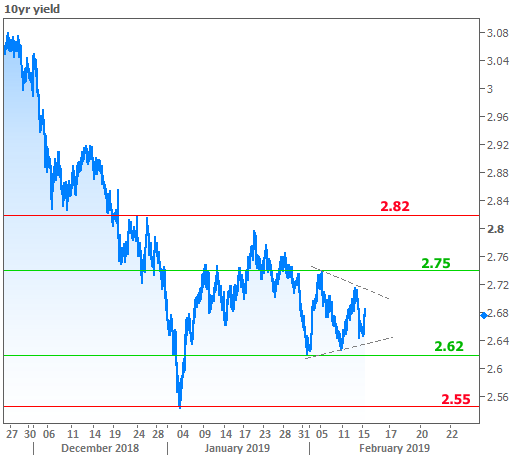A further decline in the housing market would have sent ravaging ripples throughout our economy. By one price quote, the firm's actions prevented home rates from dropping an additional 25 percent, which in turn conserved 3 million jobs and half a trillion dollars in financial output. The Federal Housing Administration is a government-run home mortgage insurance company.
In exchange for this defense, the agency charges up-front and annual costs, the expense of which is passed on to customers. Throughout regular economic times, the firm typically focuses on customers that need low down-payment loansnamely very first time property buyers and low- and middle-income households. During market recessions (when private investors withdraw, and it's hard to protect a mortgage), lenders tend rely on Federal Real estate Administration insurance to keep mortgage credit streaming, implying the company's organization tends to increase.

housing market. The Federal Housing Administration is expected to run at no expense to federal government, utilizing insurance fees as its sole source of earnings. In the event of a severe market recession, nevertheless, the FHA has access to an unrestricted credit line with the U.S. Treasury. To date, it has actually never ever needed to make use of those funds.
Today it deals with installing losses on loans that stemmed as the market remained in a freefall. Housing markets throughout the United States seem on the repair, however if that recovery slows, the agency may soon need support from taxpayers for the very first time in its history. If that were to happen, any financial backing would be an excellent investment for taxpayers.
Any assistance would amount to a tiny portion of the company's contribution to our economy over the last few years. (We'll go over the details of that support later on in this short.) In addition, any future taxpayer support to the company would nearly definitely be short-term. The factor: Home mortgages guaranteed by the Federal Housing Administration in more current years are most likely to be some of its most profitable ever, generating surpluses as these loans develop.
How After My Second Mortgages 6 Month Grace Period Then What can Save You Time, Stress, and Money.
The opportunity of government assistance has always been part of the deal between taxpayers and the Federal Real estate Administration, despite the fact that that support has actually never been required. Because its production in the 1930s, the firm has actually been backed by the complete faith and credit of the U.S. federal government, meaning it has full authority to take advantage of a standing credit line with the U.S.
Extending that credit isn't a bailoutit's satisfying a legal promise. Reviewing the previous half-decade, it's in fact quite exceptional that the Federal Real estate Administration has made it this far without our help. 5 years into a crisis that brought the whole mortgage industry to its knees and led to extraordinary bailouts of the country's largest monetary institutions, the agency's doors are still open for company.
It describes the function that the Federal Real Estate Administration has actually had in our nascent housing healing, offers an image of where our economy would be today without it, and lays out the threats in the agency's $1. 1 trillion insurance coverage portfolio. Considering that Congress produced the Federal Housing Administration in the 1930s through the late 1990s, a federal government guarantee for long-term, low-risk loanssuch as the 30-year fixed-rate mortgagehelped ensure that mortgage credit was constantly readily available for almost any creditworthy customer.
real estate market, focusing mainly on low-wealth families and other customers who were not well-served by the private market. In the late 1990s and early 2000s, the home loan market altered considerably. New subprime home mortgage products backed by Wall Street capital emerged, a lot of which completed https://diigo.com/0lk0is with the basic home loans guaranteed by the Federal Housing Administration.
This gave lending institutions the motivation to steer debtors towards higher-risk and higher-cost subprime products, even when they qualified for more secure FHA loans. As private subprime lending took over the market for low down-payment borrowers in the mid-2000s, the company saw its market share drop. In 2001 the Federal Housing Administration guaranteed 14 percent of home-purchase loans; by 2005 that number had actually decreased to less than 3 percent.
The Greatest Guide To Which Of These Statements Are Not True About Mortgages
The influx of brand-new and largely unregulated subprime loans added to an enormous bubble in the U.S. housing market. In 2008 the bubble burst in a flood of foreclosures, resulting in a near collapse of the real estate market. Wall Street companies stopped providing capital to dangerous mortgages, banks and thrifts pulled back, and subprime loaning essentially came to a halt.
The Federal Housing Administration's lending activity then rose to fill the gap left by the failing private mortgage market. By 2009 the company had actually handled its biggest book of business ever, backing approximately one-third of all home-purchase loans. Ever since the agency has actually insured a disney world timeshare rentals traditionally large portion of the mortgage market, and in 2011 backed roughly 40 percent of all home-purchase loans in the United States.
The firm has actually backed more than 4 million home-purchase loans since 2008 and assisted another 2. 6 million families lower their regular monthly payments by refinancing. Without the firm's insurance coverage, millions of homeowners may not have actually had the ability to gain access to home loan credit given that the real estate crisis began, which would have sent out devastating ripples throughout the economy.
But when Moody's Analytics studied the subject in the fall of 2010, the results were incredible. According to initial estimates, if the Federal Housing Administration had simply stopped doing business in October 2010, by the end of 2011 mortgage rates of interest would have more than doubled; new real estate construction would have plunged by more than 60 percent; new and existing home sales would have come by more than a third; and house rates would have fallen another 25 percent below the already-low numbers seen at this moment in the crisis.
economy into a double-dip economic crisis (find out how many mortgages are on a property). Had the Federal Housing Administration closed its doors in October 2010, by the end of 2011, gross domestic product would have decreased by nearly 2 percent; the economy would have shed another 3 million tasks; and the joblessness rate would have increased to almost 12 percent, according to the Moody's analysis. what are cpm payments with regards to fixed mortgages rates.

8 Simple Techniques For Who Took Over Abn Amro Mortgages
" Without such credit, the real estate market would have completely closed down, taking the economy with it." Regardless of a long history of insuring safe and sustainable home mortgage items, the Federal Housing Administration was still hit hard by the foreclosure crisis. The agency never ever guaranteed subprime loans, however most of its loans did have low deposits, leaving debtors susceptible to serious drops in house prices.
These losses are the outcome of a higher-than-expected number of insurance claims, resulting from unmatched levels of foreclosure throughout the crisis. According to current quotes from the Workplace of Management and Budget, loans originated between 2005 and 2009 are anticipated to lead to an astonishing $27 billion in losses for the Federal Housing Administration.
Seller-financed loans were typically filled with fraud and tend to default at a much greater rate than standard FHA-insured loans (which of these statements are not true about mortgages). They made up about 19 percent of the total origination volume in between 2001 and 2008 however account for 41 percent Informative post of the company's accrued losses on those books of company, according to the agency's newest actuarial report.